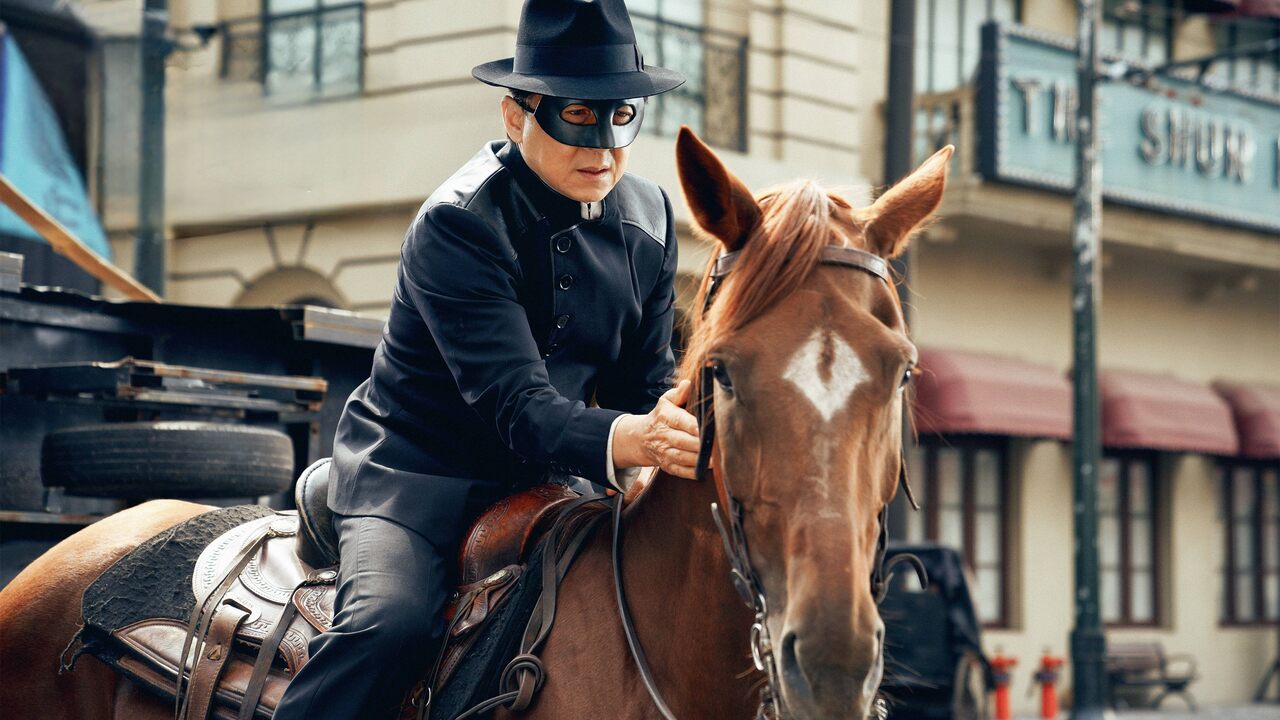
In "Ride On," Jackie Chan takes on the role of Luo Zhilong, a forgotten stuntman desperate to mount a comeback in an industry that has abandoned him. The film serves as both an uneven swan song and a self-reflective journey for Chan, showcasing his enduring charm and physical prowess. However, while it delivers satisfying fight scenes and nods to Chan's legendary catalog of death-defying stunts, the movie falls short in its attempts to explore deeper emotional connections.
The story revolves around Luo's relationship with his beloved horse, Red Hare, as he fights to keep the animal amidst mounting financial difficulties. Alongside this struggle, Luo attempts to reconcile with his estranged daughter, Bao, with whom he shares tender moments watching clips from Chan's films. While Chan's presence and well-honed clowning make Luo somewhat endearing, the emotional baggage attached to the character is largely left unexplored, leaving viewers wanting more.
One cannot help but view "Ride On" through the lens of Chan's real-life controversies and strained relationships with his children. This backdrop adds a layer of complexity to Luo's character as if the film is attempting to address these issues indirectly. However, it feels like a half-hearted attempt at damage control rather than a genuine exploration of the themes at hand.
The film's pacing is also uneven, with the narrative jumping between Luo's struggle with debt collectors, his relationship with Bao, and the rekindling of interest in his stunt expertise. These disparate storylines, coupled with underdeveloped emotional arcs, contribute to a lack of cohesion in the overall narrative.
Despite these shortcomings, the action sequences provide a glimpse of Chan's signature moves and physical agility. Luo's three fights with debt collector Dami are particularly satisfying, showcasing Chan's ability to captivate audiences with his martial arts prowess. However, even these moments of excitement fail to fully compensate for the film's shortcomings in character development and emotional depth.
Director Larry Yang's screenplay paints the emotional landscape with broad strokes, relying on Chan's charm and Liu Haocun's wholesome performance as Bao to compensate for the script's shortcomings. The overuse of saccharine scoring by Lao Zai further undermines the authenticity of the film's genuinely moving moments, making them feel manipulative rather than organic.
At a runtime of 126 minutes, "Ride On" could have benefited from tighter editing. Some scenes feel extraneous, detracting from the film's core themes and diluting the impact of Chan's on-screen presence. A more focused approach could have elevated the emotional resonance and made for a more compelling viewing experience.
Ultimately, "Ride On" serves as a nostalgic nod to Chan's illustrious career and the often underappreciated contributions of stunt teams. It highlights the conflict faced by an aging artist who must confront the passage of time and the limitations it imposes. Chan's performance, though not breaking new ground, retains the charisma that has endeared him to audiences throughout his career. However, for those seeking a deeper exploration of Chan's legacy and personal struggles, the film falls short of its potential.
In the end, "Ride On" is a bittersweet farewell to a cinematic icon, showcasing glimpses of Chan's brilliance while grappling with missed opportunities for emotional depth. It is a testament to his enduring talent and the impact he has had on the action genre. While the film may not satisfy all fans, it serves as a reminder of the indelible mark Jackie Chan has left on the world of cinema.
Final Score- [7/10]
Reviewed by – Neha Krishna
Follow @Neha25Krishna on Twitter
Publisher at Midgard Times
Hi Everyone, after a due consideration, we have decided that we will be open for donations to help us in managing our website. We will be greatful for any kind of amount we receive. Thanks!
— Midgard Times 🎬 (@Moviesr_net) January 4, 2026
PayPal- [email protected] pic.twitter.com/DlNNz5Npm5
Get all latest content delivered to your email a few times a month.
Bringing Pop Culture News from Every Realm, Get All the Latest Movie, TV News, Reviews & Trailers
Got Any questions? Drop an email to [email protected]